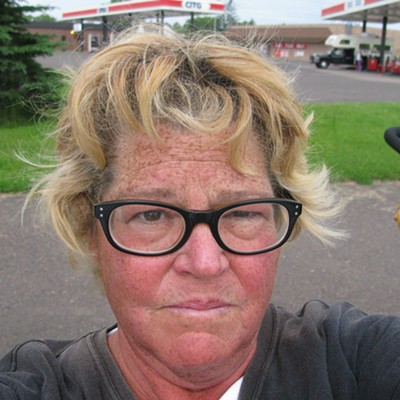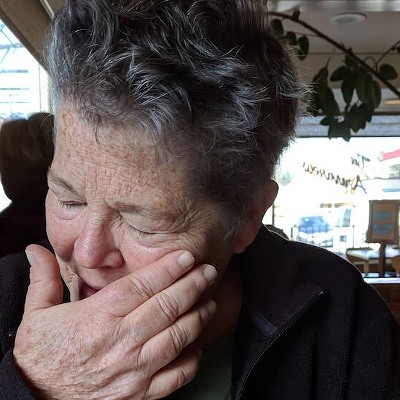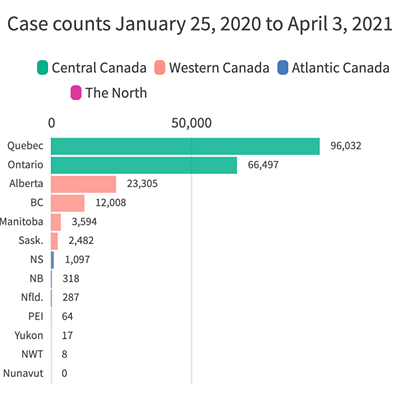Smriti MehraPassport: India
Smriti Mehra says her films are not hers. Not because they’re Dogme films, that cinematic genre where the director must not be credited. Is it humility then? “Not really,” says the petite Indian of her creative role in making Neerinakallu (Water Stone), a beautiful “non-fiction film” which traces the movement of clothes through their wash cycle. The film is set within the space of a dhobi ghat, an outdoor laundromat, in Bangalore, Mehra’s hometown.
“It’s just that the stories and lives in the films are not mine; they’re theirs,” she says, referring to her subjects—like the traditional laundrymen, or dhobis. For this same reason, Mehra says, the “discourse” created by her films, which are also not documentaries because they don’t explore facts and figures, is more important than the films themselves: issues like ethical labour practices, occupational hazards and urban migrancy. She always also involves a non-governmental partner, an NGO.
The 26-year-old filmmaker’s interest in conceptual filmmaking is what drew her to the Nova Scotia College of Art and Design last year. There she’s one of a few international MFA Film Studies students making work that’s catching the eye of film festivals around the world. “My work has travelled more than I have,” she confesses, listing off the places it’s been. “Berlin, Copenhagen, London.”
In fact, after Bangalore, a city with population of over six million, Halifax is only the second place Mehra has lived. “‘Halifax? Where’s Halifax?’ I asked my professor,” at Shrishti School of Art, Design and Technology. “And I hadn’t heard of NSCAD either. I just went with my gut feeling.”
Mehra’s feeling for Bangalore, nicknamed the Silicon Valley of India, is ambivalent. “People who have never even left are taught to speak with an American accent so that callers don’t know where they are,” she explains incredulously.
She calls it a kind of “schizophrenia,” a subject she’s exploring in a new Nova Scotia film. Mehra explains that in India, mental illness is under-diagnosed and the therapy and pharmaceuticals ubiquitous in Canada are only for the very elite.
Anything else strike her as odd in Halifax? “No sewage treatment plant,” she says emphatically, explaining that in India, the poorest people in the world wouldn’t dream of pumping their waste into the sea.
Mehra is certain where she will go after she completes grad studies: back to Bangalore for a year to work on a film funded by the American Association of University Women. She also knows that her film will be about one of many women’s issues in India for which “the judicial system in India offers no support”: marital rape.
Because it takes Mehra 36 hours to fly between Bangalore and Halifax, she says it’s unlikely she’ll stay here permanently. “My whole world is there . If something happened, I would want to be close enough.”
Dane Helle Haven Petersen Passport: Denmark
Dane Helle Haven Petersen has a favourite view from the Mount Saint Vincent University campus: Standing outside Rosaria Student Centre, she likes to watch ships load and unload at the container pier adjacent to the Bedford Basin. “I practically know their schedules,” she laughs, looking down the hill and then at her watch. “Yep, they’re on time.”
It’s her link to the ocean that brought this blonde, blue-eyed tourism and hospitality student to Halifax. No, she’s not one of the Vikings—“somewhere in my late 20s” is all she’ll say about her age. She docked in Halifax in 2001 as the cook aboard the tall ship Picton Castle, which calls its homeport Lunenburg—another Nova Scotia place she genuinely appreciates for the way its waterfront is being developed. Petersen left and came back to Halifax three times, detouring once to Calgary for love, and landing the last time in 2004 to enrol at the Mount.
Denmark is a country where university is free, but tourism and hospitality is not available as a study program, she says. As an international student at the Mount, Petersen will pay a hefty $10,000 for four credits—she’s financing her tuition with a Danish bank loan. And she’s not taking a full course load because she also has a job: she’s the executive vice president for the MSVU Student Union.
While she likes the politics, Petersen says that for international students, on-campus jobs used to be the only way you could work in Canada. That changes this fall with the introduction of Citizen and Immigration Canada’s Off-Campus Work Permits Program.
The Mount—which, according to its website, has 5,000 students—is also much smaller than the university Petersen attended in Denmark. “Twenty-five thousand students and no one really knows who you are,” she says. Denmark is about four-fifths the size of Nova Scotia, but its population is 5.4 million, whereas Nova Scotia’s population is just under one million.
While she finds Nova Scotians more open-minded than western Canadians, she’s also struck by their lack of “passion.” She attributes that partly to Canada’s size. “So many haven’t travelled anywhere. Maybe they think about going to Alberta after they graduate, but that’s it.” The differences surfaced last year for Petersen when the Danish newspaper Jyllands-Posten published cartoons depicting the prophet Muhammad. “It was an odd time to be away from home when the reaction was so strong,” she recalls. “I thought, ‘Maybe I should take off my Danish flag pin....’ But I also know that Denmark is a very sarcastic nation.”
Petersen says she will probably return to Denmark after graduation, in part because she finds the immigration process in Canada so onerous—“I can go anywhere in the EU with a Danish passport.” She’s eyeing Nova Scotia tourism opportunities for Europeans, especially those that involve unique experiences—like the charms long roads and big cars provide. Or barques like the Picton Castle.
Hien TruongPassport: Vietnam
One of Hien Truong’s tasks at the Halifax Immigrant Learning Centre involves making “games,” which the centre uses to teach English. The commerce student, who’s starting her second year at Saint Mary’s University, says she uses photos of grocery items, for example, to make flashcards.
It’s practical experience for the 31-year-old Vietnamese woman, who moved to Canada with her Chinese-Canadian husband almost three years ago, for Truong is also trying to improve her own spoken English. “My written and reading is very good, but I still have trouble speaking English,” she says, faltering slightly.
In part, that’s kept her from using the teaching degree she earned in Vietnam. “I changed my mind because it would be too hard to be a teacher here, to be fluent in the language and the culture,” she insists. “To teach, you need to know the culture.”
Truong says that the cultural differences between Canada and Vietnam strike her during classes at SMU. “Professors try to encourage you to speak,” she explains. “And if you really study hard, then you get good marks.” But in Vietnam, you either felt “lucky” if you passed your courses or you did so because you cheated, she says. “When I graduated from university in Da Nang in 1997, there was not freedom of speech there. And if you had a complaint, you didn’t know who to talk to—there was no form to fill out.”
A mature student, Truong—who stands around five feet tall—says the age difference is not a big deal. “I don’t really recognize that are 10 years younger because physically they’re bigger and taller.”
Da Nang, a port city in the Communist country, is roughly halfway between the capital Ha Noi and Ho Chi Minh City. It’s the fifth largest city in a densely populated country straddling the South China Sea and China, Laos and Cambodia—there are more than 84 million Vietnamese people, or 980 people per square kilometre. (Nova Scotia, in comparison, has approximately 17 people per square kilometre.) Nearly three out of four people live in rural areas, and many are “very, very poor,” says Truong. “They work their whole lives and don’t earn as much as the very rich do in a month.”
That contrasts with her own sister’s life today, she says. As Vietnamese government employees, she and her husband can afford to have a fridge, a washing machine—“Not like my parents.” Truong recalls a time around 1975 when their family didn’t even have enough rice to eat.
Truong also clearly loves Vietnam—she underlines the fact that she deliberately chose to keep her birth name. And she’s counting on being able to go back some day. When she graduates, Truong intends to do business in import/export markets. It’s too soon to pin her down to a particular product. “Maybe bamboo,” she suggests.
But until university starts up, she’ll stick to her job: she also phone surveys employers who participated in a work placement program—“It improves my English.” And she teaches: not high school or even business, but computers, to newcomers from yet other parts of the world.
Student: Ameka ChinabuPassport: Nigeria
Ameka Chinabu is a networker, a people person, a big man on campus—literally: he’s six feet something and broad in the shoulders. In the three minutes it takes the vice president of external affairs for the Saint Mary’s University Students’ Association to travel from his fifth floor office down to the Gorsebrook Lounge, Chinabu says, “Hello, how you doing?” to at least a half-dozen people, all of whom visibly brighten when they see him.
It’s a good thing. As VP external, the fourth-year Nigerian business and commerce student coordinates on-campus charity fundraisers. Or as he puts it: “You put yourself below the students. You don’t sit in an office and not reach out.”
But the notion of service makes Chinabu, 26, laugh. He tosses back his head with a wide smile that extends through his round cheeks. Chinabu says he grew up in a small town east of Abuja, the capital city of Nigeria, a western African country with a population of nearly 117 million and a median age of 18. Although he applied at a few European schools, he says he enrolled at SMU because he liked the sound of its Roman Catholic name. “I also volunteer at St. Mary’s Cathedral Basilica,” he explains, as part of the church’s young adult outreach work, providing food, drinks and conversation to people in need in downtown Halifax.
Chinabu is passionate about soccer—he played for a couple of local teams in the two years he’s lived in Halifax, but this year he hasn’t the time because he’s attempting to graduate with a double major in Human Resources and Marketing. But he’s not at all grief-stricken by the fact that his country didn’t even qualify for this summer’s World Cup.
He says that one of the most attractive things about SMU for international students like him is that even though tuition fees are double what Canadian students pay, the school has put a freeze on the international differential—that is, the 3.9-percent tuition increase limit applies to all students, not just Canadians. As for Chinabu, his family is sponsoring his education.
Chinabu, whose favourite international news source is the BBC online, says he has never known anything except democracy—or mostly that. Between 1960 and 1985, Nigeria experienced five presidential coups, including one by current president Olusegun Obasanjo, who relinquished that power in 1979 to a democratically elected president. In 1999, after converting to Christianity, Obasanjo was elected president and re-elected in 2003. He was rumoured to be seeking a third term, but the constitutional reform that would have allowed it was defeated in May.
Prior to coming to Halifax, Chinabu worked briefly in the import/export business in Nigeria, which exports mostly oil but also cotton, textiles, footwear and ceramics. It’s a career he wants to return to upon graduation, either “here or back in Nigeria or somewhere else.”
Asked about at his black leather loafers, embellished with the Union Jack, he turns them into a metaphor for his attitude toward life. “They’re just fun. I like fun.”













